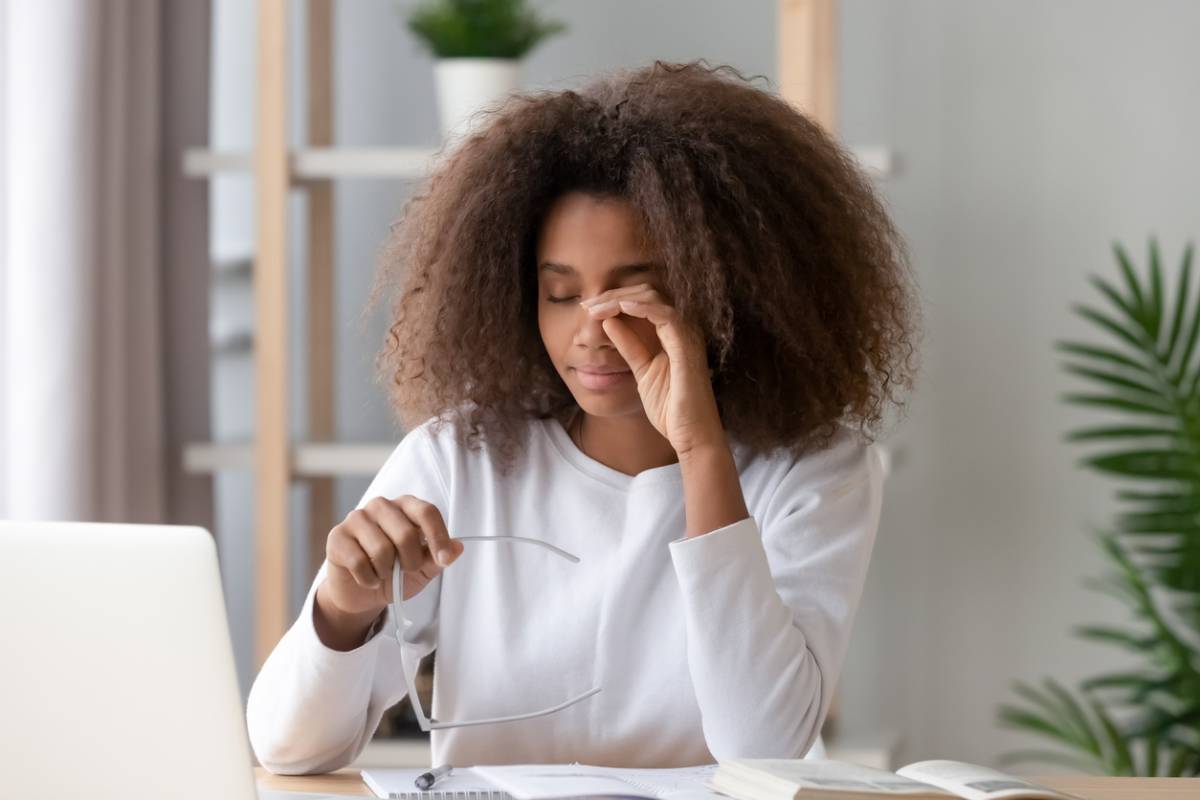Chronic dry eye is a relatively common condition most typically associated with people who are middle-aged and above. It is caused by your body not producing enough, quality tears. Without tear production and drainage, your eyes are not properly lubricated. This can leave your eyes feeling gritty, dry, and irritated. However, you should keep in mind that dry eyes are not always related to the same condition. Causes include:
Why Are My Eyes Always Dry?
- Medications: Medications, including many antihistamines, decongestants, blood pressure medications, and anti-depressants are commonly associated with chronic dry eye.
- The Climate: If it’s abnormally windy or dry, then your eyes are going to struggle to compensate. You may experience this while visiting the desert, high altitudes, or when there is a fire nearby.
- Diseases: Inflammation of the eyelids (blepharitis), rheumatoid arthritis, and diabetes are all known for contributing to the body’s inability to produce quality tears.
- Aging: Full stop, both men and women are more susceptible to dry eye starting in their 40s and 50s.
- Hormonal Changes: Women may experience chronic dry eye when they start a new birth control, become pregnant, or begin menopause.
- Lifestyle Choices: Extended screen time, long-term contact use, and Lasik all put people at higher risk for chronic dry eye.
When the Cause is Temporary
The good news is that some of these causes indicate that the condition is temporary. Once you exit that environment, stop taking a particular medication, or reduce your screen time you will likely return to relative normalcy fairly soon. In these cases, over-the-counter eye drops from your local pharmacy are generally enough to give you relief until you’re feeling better.
When the Cause is Permanent
Unfortunately, many of the causes of chronic dry eye aren’t easy fixes. You can stop aging. If you’re on blood pressure medications or anti-depressants, then you need those medications long-term. Diseases like arthritis and diabetes don’t just go away, so the question remains what can you do to address your chronic dry eye.
Start by visiting your eyelid surgeon in Newport Beach. Oculoplastic surgeons specialize in the delicate structures of the eye. And they can help by looking at your issue in terms of the eye’s overall structure. It is true that eye drops could likely be used to relieve your symptoms. But they are not a permanent solution. Eye drops are simply compensating for your body’s inability to produce natural tears. With the right treatment plan, your oculoplastic surgeon can help to ensure that you don’t rely on eye drops for comfort.
Surgically Addressing Dry Eyes
When you visit your oculoplastic surgeon, you can bet that they will be concerned with two primary parts of your physiology:
- Your tear ducts
- And your eyelids
You see while it is the tear ducts that are responsible for pumping tears into the eye, your eyelids are responsible for distribution. Even if you do have punctal plugs placed to prevent your eyes from losing moisture, you may still suffer from the symptoms of chronic dry eye if your eyelids cannot do their part.
As a result, there is a chance that your dry eyes treatment in Newport Beach may require a minor procedure. This can correct your eyelids to make sure they’re able to distribute your tears across your eyes. With a little patience, you’ll be more comfortable and you’ll have even younger-looking eyes once your treatment plan is completed. If you have any questions regarding dry eye treatment, don’t hesitate to reach out to your local oculoplastic surgeon for a consultation.
